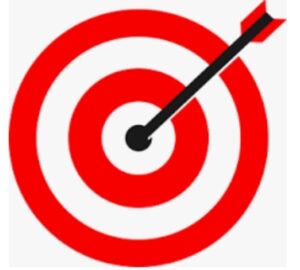
Immuno-oncology (or immunotherapy) and precision medicine are the newest developments in the treatment of advanced cancer. Immuno-oncology helps to restore the body’s immune system and improves outcomes when administered alone or in combination with chemotherapy.
Immunotherapy is the use of medicines to stimulate a person’s own immune system to recognize and destroy cancer cells more effectively. Certain types of immunotherapy can be used to treat prostate cancer.
Targeted therapy is a type of cancer treatment that uses drugs to identify and attack cancer cells while doing little damage to normal cells.
PARP inhibitors
- Rucaparib (Rubraca)
- olaparib (Lynparza)
Hormone therapy (androgen suppression therapy) for prostate cancer
The goal is to reduce levels of male hormones, called androgens, in the body, or to stop them from fueling prostate cancer cells.
When is hormone therapy used?
Hormone therapy may be used:
If the cancer has spread too far to be cured by surgery or radiation, or if you can’t have these treatments for some other reason
If the cancer remains or comes back after treatment with surgery or radiation therapy
Along with radiation therapy as the initial treatment, if you are at higher risk of the cancer coming back after treatment
Before radiation to try to shrink the cancer to make treatment more effective
Types of hormone therapy
- Treatment to lower testicular androgen levels
- Androgen deprivation therapy, also called ADT, uses surgery or medicines to lower the levels of androgens made in the testicles.
Orchiectomy (surgical castration)
Even though this is a type of surgery, its main effect is as a form of hormone therapy. In this operation, the surgeon removes the testicles, where most of the androgens (such as testosterone and DHT) are made. This causes most prostate cancers to stop growing or shrink for a time.
LHRH agonists
LHRH agonists are injected or placed as small implants under the skin. Depending on the drug used, they are given anywhere from once a month up to once every 6 months. The LHRH agonists available in the United States include:
- Goserelin (Zoladex)
- Leuprolide (Lupron, Eligard)
- Leuprolide mesylate (Camcevi)
- Triptorelin (Trelstar)
LHRH antagonists
- Degarelix (Firmagon)
- Relugolix (Orgovyx)
Treatment to lower androgen levels from the adrenal glands
- Abiraterone (Zytiga)
- Ketoconazole (Nizoral
Drugs that stop androgens from working
- Aalutamide (Erleada)
- Bicalutamide (Casodex)
- Darolutamide (Nubeqa)
- Enzalutamide (Xtandi)
- Flutamide (Eulexin)
- Nilutamide (Nilandron)
Other androgen-suppressing drugs
Estrogens (female hormones) were once the main alternative to removing the testicles (orchiectomy) for men with advanced prostate cancer.
Combined androgen blockade (CAB)
Some doctors treat patients with androgen deprivation (orchiectomy or an LHRH agonist or antagonist) plus an anti-androgen.
Triple androgen blockade (TAB)
Some doctors have suggested taking combined therapy one step further, by adding a drug called a 5-alpha reductase inhibitor – either finasteride (Proscar) or dutasteride (Avodart) – to the combined androgen blockade.
In an attempt to improve the chance of cure, immunotherapies, hormone therapy, and chemotherapy are being tested alone or in combination with chemotherapy in clinical trials.




